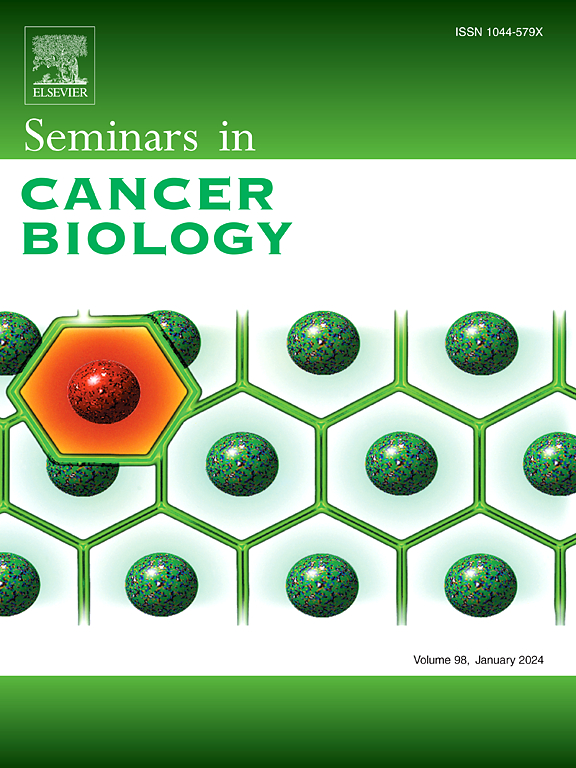HDAC inhibitors: Cardiotoxicity and paradoxical cardioprotective effect in ischemia-reperfusion myocardiocyte injury
IF 12.1
1区 医学
Q1 ONCOLOGY
引用次数: 0
Abstract
Histone deacetylase inhibitors (HDACIs) are epigenetic drugs that regulate the acetylation status of histones and non-histone proteins, thereby leading to chromatin remodeling and transcriptional regulation of key apoptotic and cell cycle regulatory genes. There are currently five HDACIs clinically approved by the major regulatory authorities for treating hematological cancers, primarily as monotherapy. While HDACIs have been particularly effective in T-cell lymphomas, their clinical efficacies have not yet extended to solid tumors. The development of HDACIs continues, including for the treatment of a non-malignant conditions, with givinostat recently approved by the US FDA. However, the early development of HDACIs was limited by concerns about cardiotoxicity including QT interval prolongation. Yet, paradoxically, the latest research suggests some cardioprotective effect of HDACIs in ischemic heart disease or heart failure. This review presents the latest update about the cardiotoxicity of the clinically approved HDACIs. The mechanisms leading to HDACI-induced cardiotoxic adverse events and clinical strategies for their management are discussed. We will also deliberate the potential repurposing use of HDACIs and their HDAC isoform selectivity for treating ischemia-reperfusion cardiac muscle injury, cardiac hypertrophy, and fibrosis.
HDAC抑制剂:缺血-再灌注心肌细胞损伤的心脏毒性和矛盾的心脏保护作用
组蛋白去乙酰化酶抑制剂(Histone deacetylase inhibitors, HDACIs)是一种表观遗传药物,可调节组蛋白和非组蛋白的乙酰化状态,从而导致染色质重塑和关键凋亡和细胞周期调控基因的转录调控。目前有5种hdac被主要监管机构批准用于治疗血液病癌症,主要作为单药治疗。虽然hdac对t细胞淋巴瘤特别有效,但其临床疗效尚未扩展到实体瘤。hdac的开发仍在继续,包括用于治疗非恶性疾病,吉维司他最近获得了美国FDA的批准。然而,hdac的早期发展受到包括QT间期延长在内的心脏毒性的限制。然而,矛盾的是,最新的研究表明hdac对缺血性心脏病或心力衰竭有一定的心脏保护作用。这篇综述介绍了临床批准的hdac的心脏毒性的最新进展。导致hdac诱导心脏毒性不良事件的机制和临床策略的管理进行了讨论。我们还将探讨HDAC及其HDAC异构体选择性治疗心肌缺血再灌注损伤、心肌肥厚和纤维化的潜在用途。
本文章由计算机程序翻译,如有差异,请以英文原文为准。
求助全文
约1分钟内获得全文
求助全文
来源期刊

Seminars in cancer biology
医学-肿瘤学
CiteScore
26.80
自引率
4.10%
发文量
347
审稿时长
15.1 weeks
期刊介绍:
Seminars in Cancer Biology (YSCBI) is a specialized review journal that focuses on the field of molecular oncology. Its primary objective is to keep scientists up-to-date with the latest developments in this field.
The journal adopts a thematic approach, dedicating each issue to an important topic of interest to cancer biologists. These topics cover a range of research areas, including the underlying genetic and molecular causes of cellular transformation and cancer, as well as the molecular basis of potential therapies.
To ensure the highest quality and expertise, every issue is supervised by a guest editor or editors who are internationally recognized experts in the respective field. Each issue features approximately eight to twelve authoritative invited reviews that cover various aspects of the chosen subject area.
The ultimate goal of each issue of YSCBI is to offer a cohesive, easily comprehensible, and engaging overview of the selected topic. The journal strives to provide scientists with a coordinated and lively examination of the latest developments in the field of molecular oncology.
 求助内容:
求助内容: 应助结果提醒方式:
应助结果提醒方式:


